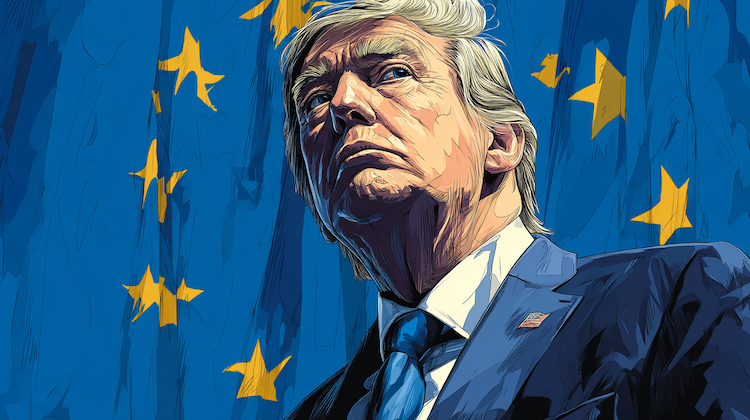Trump's 'Golden Era' Fades as European Allies Face Harsh New Reality [View all]
 Once optimistic, key European leaders who backed Donald Trump now face stinging tariffs and a new, uncompromising Washington.
https://www.socialeurope.eu/trumps-golden-era-fades-as-european-allies-face-harsh-new-reality
Once optimistic, key European leaders who backed Donald Trump now face stinging tariffs and a new, uncompromising Washington.
https://www.socialeurope.eu/trumps-golden-era-fades-as-european-allies-face-harsh-new-reality

The spectre of a second Trump presidency has loomed large in Europe over the past three months. Many leaders, burnt by the first incarnation, were pessimistic about Donald Trump’s return to the White House and what it would mean for multilateral institutions, such as NATO, and the fate of Ukraine. A select number, however, particularly in Central and Eastern Europe and the Balkans, were more optimistic. These figures – Hungary’s Viktor Orbán, Serbia’s Aleksandar Vučić and Bosnia and Herzegovina’s Serb leader, Milorad Dodik – seemed advantaged by their relationship with, and ideological affinity to, the new president. They predicted a “golden era” of bilateral relations and spoke openly about how a Trump-led White House would help make their country “great again”.
Little was said then about potential roadblocks. Mr Orbán, Mr Vučić, Mr Dodik and others assumed, despite Mr Trump’s repeated campaign promises regarding tariffs and trade, that their countries would be exempted or afforded preferential treatment on the basis of their support. And yet, here they stand, the victims of a new, business-like and imperial approach from Washington, in which big countries with influence are taken seriously, while others are viewed as having “no cards” to play.
On 2 April, a date some had sarcastically dubbed “Liberation Day”, there was no mercy for Mr Trump’s allies. Serbia was hit with a whopping 37 percent tariff rate on its exports, the largest in the region; Bosnia and Herzegovina was slapped with a 35 percent levy; and Hungary, whose leader is widely considered a political bedfellow of the new president, faces a potential 20 percent charge on exports as a consequence of its membership of the EU and its economic relations with China and Russia.
It has been a chastening period for these leaders and their citizens alike, given Washington’s historic interest in Central and Eastern Europe and the Balkans. It has also exposed the dynamics of a relationship that Mr Orbán, Mr Vučić and Mr Dodik had hoped would work in their favour. This was evident when the US Secretary of State, Marco Rubio, swiftly and unequivocally condemned Milorad Dodik’s signing of separatist laws that challenged Bosnia and Herzegovina’s constitutional order. Mr Rubio also warned local and regional actors – including Hungary and Croatia – against trying to undermine the Dayton Peace Accords.
snip

